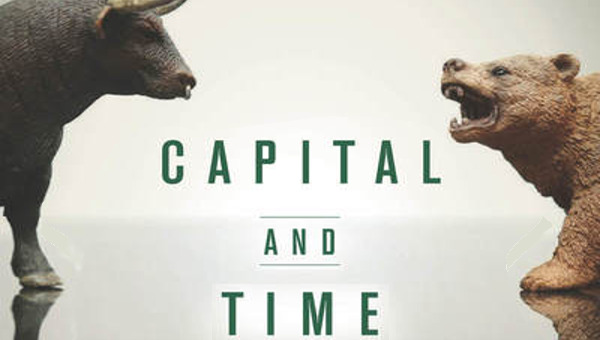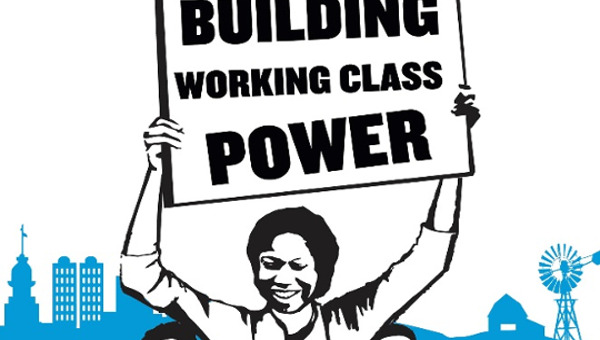The Financial Crisis: Notes on Alternatives
Over the last quarter century, the left in most of the developed world has been marginalized as a social force. The ‘culture of possibilities’ for left alternatives has correspondingly narrowed. But historic changes, above all the discrediting of neoliberalism, hold out the potential of at long last reversing that earlier defeat. With the continuing financial turmoil and the global economy about to enter the worst downturn since the great depression, the desperate need for alternatives is clear enough; the question is whether we can develop the capacity to once again be a relevant social actor.
To this point, this opening for the left has been primarily polemical. Its true of course that in the recent elections, politicians – in Canada no less than in the U.S. – continued to insist on their allegiance to lower taxes and to run from significant redistributions in income, let alone wealth or power. In the U.S., an affirmation of American patriotism remains the condition for raising even moderate criticisms of foreign policy. But neoliberal ideology is reeling and the delegitimation of freer markets as the solution to everything has already made the right more defensive on economic issues than it has been for a generation. They can no longer get away with calling for the freeing of corporations and financial institutions from regulation to ‘unleash the creativity of markets,’ or rejecting out of hand state involvement to address social needs.
Moreover, the depth and global scope of the downturn will leave the state with little choice but to introduce massive public expenditures. Working families, experiencing the frightening erosion of their effective savings – their pensions and home values – have already started to cut back on consumption in order to rebuild some future security. Private investors, seeing few opportunities and reacting with caution and uncertainty toward the future, are not investing. For the immediate future, neither private incentives nor freer markets, neither the easy hand of more credit nor the promise of more exports, will end the news of failing companies and rising unemployment. Only public investment has a chance of leading an economic revival.
All this is important to account for: it may even mark the end of an era. Yet, we need to be sober about how far the crisis and responses to it can, in themselves, take us. Even if the rhetoric and some of the practices of neoliberalism are modified, a good deal of the structures, power, and logic of that earlier period remain firmly in place. Globalization and free trade are not going away. The recent G-20 meeting accomplished little, but it did confirm a commitment among the participating states to avoid ‘protectionism.’ Barring a complete breakdown, finance will certainly have a new institutional look, but the new regulations will serve to revive and strengthen the role of a smaller number of larger private banks domestically and internationally.
Nor is the intensified competition and restructuring that has destroyed jobs and undermined workers’ confidence going away. The pressures on autoworkers, for example, are about to get worse and structural adjustment programs in the third world – though they may now be more contested – will continue. And while the subprime crisis had to some support against foreclosures, this remains narrowly separated from the roots of the problem in decades of wage restraint, poverty and the refusal to make housing into a right rather than a commodity.
As for the American state, it has certainly lost some of its sheen. But here, too, the reality is not an imminent end to the American empire and reversal of its postwar leadership role. The centrality of the American state continues: no other state can (or even wishes to) replace the U.S.; the crisis has reconfirmed the world’s dependence on the U.S. financial system; and the resolution of this now international crisis rests fundamentally on the actions of the American state in leading a more or less coordinated response.
Thinking About Alternatives
In trying to come to grips with what needs to be done, it is useful to begin by acknowledging our limited capacities at this time. We can challenge some of the details surrounding the resolution to the financial crisis, but we can’t play much of a role in solving that crisis; our focus must be elsewhere. Abstract calls for ‘re-regulation,’ with their assumption that states and markets stand in opposition to each other, can further confuse rather than politicize those we’re trying to mobilize. As the most recent state interventions make clear, given the current balance of social forces, regulation is about finding a technical way to preserve markets in the face of their volatility, not about any fundamental reordering of relative power in society to conform to social needs. Even where the government’s involvement has allowed particular capitalists to fail, the content of state intervention has revolved around reconstituting and thereby preserving, the power of financial capitalists as a class.
Similarly, looking for the answer in some broader return to the good, old, pre-neoliberal days misunderstands the connection between then and now. Neoliberalism was a response to the unsustainability of the earlier period. The crisis of the 1970s was rooted in working class pressures on corporate profits, which led corporations to slow down their investment and threaten to shift capital abroad. At the time, some sections of the left presciently saw that the options were polarized: if there wasn’t greater control over banks and corporations, along with a move towards democratic planning, then workers would be crushed in order to restore corporate power and profits – as they in fact were. To go back to that earlier period would therefore only reintroduce the previous conflict, and restore its underlying question: whether corporate power would be restored to solve the crisis, or whether a fight could be made for a democratic alternative.
There is another factor that must be integrated into our thinking about alternatives: the extent to which the working class has been integrated into financial markets. After the 1970s, with wages held down, workers of necessity turned more and more to credit as the form through which they accessed consumption. As well, they looked to a rising stock market to boost their pension funds, and those with homes cheered rising house prices because the increase in their wealth reduced the need for savings and so allowed greater consumption. In terms of class formation, this further fragmented the working class; while the struggle for wages and public benefits depended on and built class solidarity, looking to credit (and lower taxes) to sustain their private lives led to an atrophy of collective capacities. In the current crisis, the implications of that relationship to financial markets became all too clear: in spite of popular anger over the bailout of Wall Street, there was in the end a general – if reluctant – acceptance of the bailout’s necessity to ‘save the system’ they had become dependent on.
No less important in undermining the working class as an oppositional force is the stratification that developed over the past three decades inside the working class. That internal inequality has tended to cause resentment and divisions from both those who seemed to be doing relatively well and those marginalized. The former were more easily isolated when corporations demanded concessions since even with concessions they would still be ahead of most workers; the latter were often blamed as the cause of rising taxes on those working hard to support those who were not.
The strategic question we now face might be restated as follows. All alternatives must begin with people’s needs, but can we also structure our responses so they strengthen the capacity of the working class to act independently of the logic of capitalism, while also restricting to at least some degree the power of capital? Assuming that the financial crisis does stabilize, there will still be a major recession and a period of slower growth as the aftermath of the crisis ‘unwinds.’ In that context, two questions will come to the forefront of politics: who will pay for the aftermath of the crisis, and what form will the solutions to reviving the economy (and not just finance) take?
Immediate Demands
Given the impact of the housing crisis on so many Americans and the extent of the delegitimation of the financial sector, it is rather amazing how little direct resistance has occurred. No marches, no community takeovers of foreclosed homes, no mass expressions of frustration and anger. Since the financial volcano erupted in the midst of election campaigns in the U.S. and Canada, it might have been expected that the electoral process would become a catalyst for widespread discussion of dramatic alternatives, but this too has been remarkably muted. In Canada, one indicator of the popular political malaise is that voter turnout in the recent election was the lowest in a hundred years; this could not be said of the American election yet in putting so much hope in an Obama victory, foreclosure victims waited rather than acted. The first point is therefore that any specific actions in defence of working people’s homes or savings, jobs or social programs, should be actively encouraged and supported.
But what of more general demands we might raise at this potentially radicalizing moment? Three such demands which were raised by the American left in the period preceding the bailout seem to address both popular concerns and hold out the possibility of carrying a larger strategic weight: universal health care (currently being eroded though still very legitimate in Canada), the development of the public pension system, and the building of public infrastructure.
Each of these demands reduces working class dependence on markets and the private sector. In the U.S., universal health care means not losing your benefits if you lose your job and a consequent lessening of the internalized pressure to strengthen ‘your’ corporation, through concessions if necessary, in order to hang on to your family plan. Public pensions mean less dependence on the returns your pension or mutual fund get from growth in the stock market and security against the increasing trend on the part of corporations to gut union pension plans. Public infrastructure, especially if that includes addressing the environmental crisis, provides jobs and shifts the focus from depending on market incentives to possibly do the right thing, to directly doing it.
But more than that, each of the above reduces private control over our lives – whether that be health insurance companies, the managers of institutional funds, or the corporations that are otherwise expected to drive economic stimulus through further tax breaks and a favourable ‘climate’ (which generally means less favourable to popular rights). And most important, because of their focus on universal rights and collective needs, such demands tend to overcome the divisions within the working class and contribute to building class unity and solidarity.
A fourth demand, public housing, raises another crucial dimension of universal rights and gets to the contradiction that triggered the financial crisis: policies that kept people in poverty limited their ability to make mortgage payments and this could only be hidden for so long. The answer here is not only to move away from the market as a solution for the poor, but to demonstrate the broader potentials of the public provision of services: can we imagine a kind of housing that in addition to being innovative and affordable includes a new sense of community and relationship to the surrounding city – that is housing that is exemplary of the potentials of public intervention?
As for the ever-present question of who will pay, there’s no better place to start than ‘make the rich pay’, all the more so given the fortunes that were made on the way to the present disaster. This has generally focussed on income taxes, but it should include wealth since it is wealth above all that is so monstrously distributed in both Canada and (especially) the USA. But targeting the rich is not enough. To be effective, the reach of tax increases will also have to extend into the working class, and this will mean challenging populist anti-tax sentiments which reinforce a particular kind of individualism that damages class solidarity and any vision of collective needs (It also undermines basic self-interest in that tax cuts are generally sold on the basis of passing on a few hundred dollars to workers while the bulk of the tax breaks go the rich, and the cutbacks to pay for all this fall heavily on the working class.)
Yet, redistribution alone won’t solve the crisis: savings will have to be mobilized to support the major infrastructural programs. This can be financed through government bonds, much as such bonds were mobilized to pay for World War II. In today’s case, given the current fear within the business community of investing in anything because of the present uncertainty, it is in fact primarily government bonds that could provide a secure outlet for their money.
Contradictions
Because any such reforms would be attempted in a society that is still capitalist, they would come up against inevitable limits. Growing social programs depend on a growing economy, but if growth depends on the private sector, how can you both challenge and keep private capital at the same time? Won’t they refuse to invest if they aren’t happy enough or leave the country for greater profitability and freedom elsewhere? In addition to asking why people are in poverty in the first place, innovative housing can’t be separated from rethinking the urban spaces the housing is part of (including the need for accessible transportation, especially if the housing is outside city centres).
For social democrats, such contradictions have meant retreating into more moderate demands. This has failed and the lesson is not to lower our expectations but the need to think bigger and prepare to go further. If democracy is a kind of society and not just a form of government, the economy – which is so fundamental to shaping our lives – will eventually have to be democratized. This will have to include nationalizing the banks and turning them into a democratically run public utility that supervises the rest of the financial system and allocates national savings. If domestic or foreign-based capital threatens to move (as they will do earlier rather than later) we must be ready to put capital controls on the agenda. But if we want to channel society’s savings to meet social needs – and this is of course the main reason for controlling the social surplus – the controls will have to be on domestic capital flows as well as internationally.
This ultimately raises the question of planning. If, for example, we take the environmental crisis seriously, then it’s not enough to tack on some environmental projects to rebuilding the public infrastructure. Addressing the environment will mean transforming everything about what we produce and how we produce it and this can’t happen through haphazard market decisions by individual businesses, which are only moved by profits and won’t act if they don’t know where others will ultimately go. The crisis in auto reinforces this point. A bailout alone, even if it modifies the kinds of vehicles being built, will not overcome the reality of excess capacity. Rather than closing productive facilities, why can’t they be converted to produce the new or modified products an environmentally conscious economy will need? As well, given that auto is generally concentrated in certain communities, the issue is not so much a crisis in auto as a crisis in these communities. In Windsor, for example, where thousands of autoworkers have already been laid off before the latest crisis, what’s needed is a revival plan that includes auto, but also extends to public infrastructure and the range of social services that give a richer meaning to the notion of ‘community.’
These issues of planning raise all kind of technical and democratic questions that should not be underestimated, but the most important issue it forces us to address is the question of power. The precondition for thinking about social change is that we develop the capacity to transform the distribution of power in our society.
It’s in this context of developing individual and collective capacities that the question of work-time, which has faded from lists of working class demands, must somehow be revived. The labour movement has long advocated reduced work time as a way of sharing the better full time jobs and therefore opening up new jobs, or at least preserving existing ones. This can be very important in particular sectors and is also a valuable solidaristic principle. But its greatest significance lies in another working class perspective that goes back to the earliest days of trade unionism: the recognition that full citizenship and political participation demands the time to do so – the time to read, think, learn, attend meetings and events, debate, take part in strategizing, and engage in organizing others.
From Alternative Policies to Alternative Politics
There are three final points that need to be emphasized. First, the triad of immediate resistance, developing policies for broader cross-country mobilization, and raising the ‘big’ questions such as nationalizing the banks, are not to be understood as stages of activity. The point is not to take one step first and another more radical step later but to find ways of trying to integrate all three simultaneously. Local resistance, for example, is part of all stages; its success is both dependent on and a condition for mobilizing around larger national issues. Similarly, it would be a mistake to postpone the call for transforming the private banking system into a democratically run public utility ‘until we are ready.’ We will only become ready if we place it on the agenda from the very beginning and integrate it into other demands and struggles.
Second, the greatest contradiction confronting ‘the movement’ today lies in the gap between good ideas and the capacity to fulfil them. The main barrier we face is not so much the absence of alternative policies (though these still need a lot of filling out) as the weakness of our alternative politics. This is not simply about pooling our diverse strength. Rather, it involves recognizing that in light of past failures, a dangerous future and potential new openings, each section of the movement needs to rethink what it does and how it does it as a precondition for coming together in an entirely new way.
Third, it is difficult to imagine an alternative politics that can match what we are up against without an organization whose focus is on building the essential relationships and political capacities across sections of the movement and within them. There should, for example, be hundreds if not thousands of meetings taking place every week across the country to discuss what we currently face and what to do about it. But this simply can’t happen spontaneously. How we build this kind of capacity is what the question of ‘alternatives’ is ultimately about. •
See also Bullet No. 142: The Current Crisis: A Socialist Perspective





